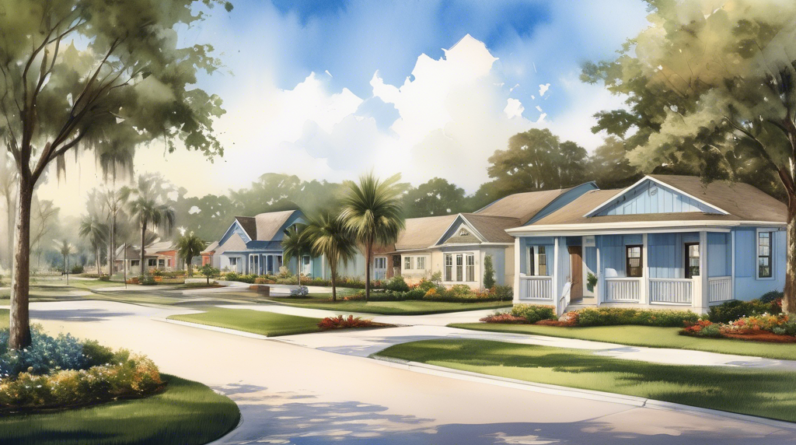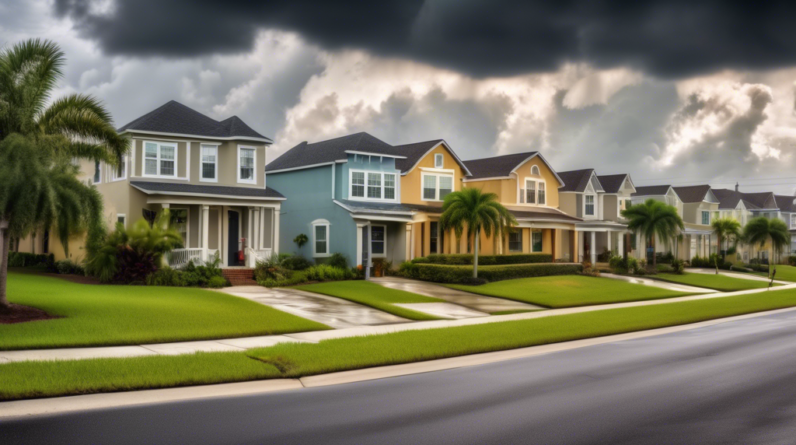Could Central Florida Impede the State’s Initiative to Increase Affordable Housing?
Affordable Housing in Central Florida
Central Florida’s efforts to boost affordable housing face new challenges as municipalities like Lake County opt out of providing property tax exemptions for such developments. Recently, Lake County became the first municipality in Central Florida to deny these exemptions, despite the developments previously qualifying under Florida’s pro-housing law. This decision was made without public discussion or comment, sparking concern among affordable housing advocates. The move could set a precedent that might discourage developers from investing in affordable housing projects in the region, further exacerbating the existing housing crisis.
Population Growth in Florida
Florida’s population continues to soar, with significant growth in metropolitan areas. The Orlando/Kissimmee/Sanford area added 54,916 new residents between July 1, 2022, and July 1, 2023, making it the fourth-fastest-growing metropolitan area in the nation and the fastest in Florida. Other areas experiencing population booms include Tampa/St. Petersburg/Clearwater and Miami/Fort Lauderdale/West Palm Beach. However, this rapid population growth accentuates the demand for affordable housing, challenging the state’s initiative to meet the needs of its residents.
My Safe Florida Home Program Issues
The My Safe Florida Home program, designed to help homeowners fortify their residences against natural disasters, has been fraught with issues since its inception. Homeowners report a plethora of problems, including confusion with the application process, difficulties uploading documents, problems contacting the program via phone, and uncertainty about the status of their applications. These administrative hurdles have hampered the effectiveness of the program, leaving many homeowners without crucial support.
Flood Insurance in Florida
The release of new FEMA flood zone maps has significant implications for property owners in Palm Beach County and beyond. Thousands of property owners with federally backed mortgages are now required to obtain flood insurance. Experts strongly advise all Florida residents to consider flood insurance, as the entire state is technically considered to be in a flood zone, whether low or high hazard. The increase in flood insurance requirements could further strain the finances of residents, impacting their ability to afford housing.
Real Estate Developments
Beyond affordable housing issues, Florida is witnessing notable real estate development activities. For instance, a 44-story, five-star hotel-branded luxury condominium tower has been proposed for downtown St. Petersburg, involving the redevelopment of a prime parking garage site into high-end accommodations. Such high-profile projects underscore the vibrant real estate market but also hint at the growing disparity between luxury and affordable housing options.
Rent Prices and Housing Market
Contrary to the national trend of rising rent prices, Florida is experiencing a cooling housing market, with rents dropping across many of its most populated metro areas. This cooling effect could provide some relief to renters but also signals volatility in the housing market. Sustained focus on affordable housing is essential to ensure that the downward trend in rental prices benefits those most in need.
Other Developments
Several other real estate transactions highlight the dynamic nature of Florida’s property market. For example, NetPark Tampa Bay, a two-story office building, was recently sold to Saxum Real Estate Partners for $45 million. Despite such high-value transactions, there are concerns about proposed subsidies for a mega mall on the edge of the Everglades in Miami-Dade. Environmentalists warn that this development could have significant negative impacts on the delicate Everglades ecosystem.
In conclusion, Central Florida’s decision to deny property tax exemptions for affordable housing projects poses a potential roadblock to the state’s broader initiative to increase affordable housing. Coupled with rapid population growth, issues with homeowner assistance programs, and fluctuating housing market conditions, the path to accessible housing for all Florida residents appears increasingly complex and fraught with challenges.







